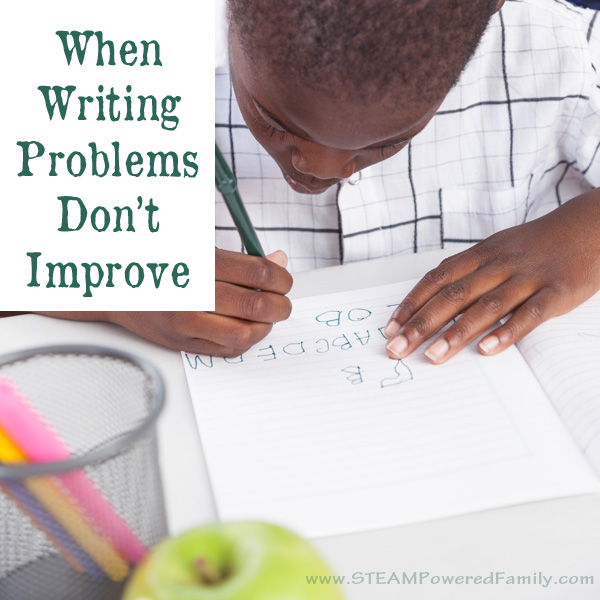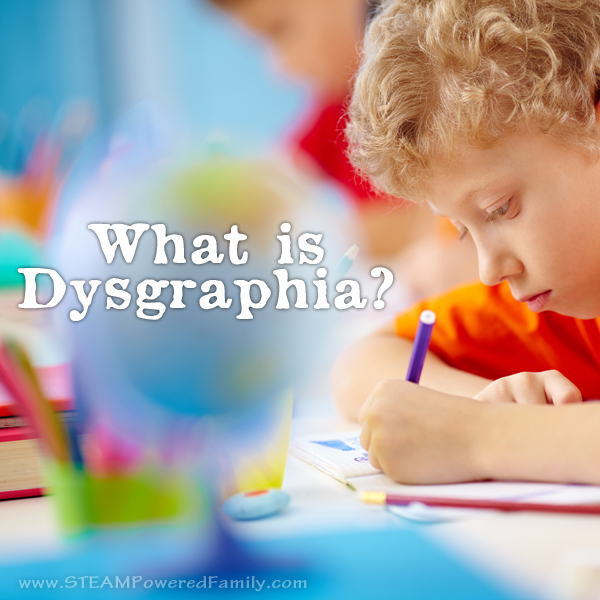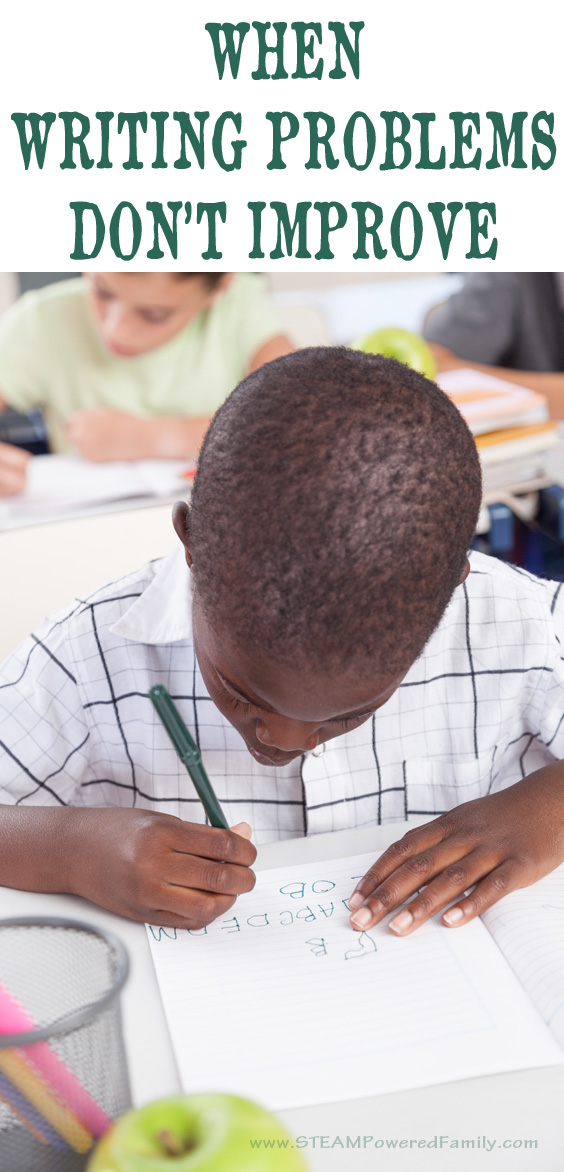When Writing Problems Don’t Improve
When writing problems don’t improve over time it can be hard to know when it is time to be concerned.
Killer Crocs, that was the name of my son’s first story he ever wrote. He was about 4 years old at the time and it’s written on a tiny, funny shaped notepad. His letters have the typical messy scrawl of that age, his words fitting awkwardly on the pages. But the story! It had a beginning, a middle and an end. It was a complete story! It never occurred to us that there might be writing problems, and we definitely had never heard the term dysgraphia.
This article is part of a series on Dysgraphia, you can read the main page and find links to all the articles here.
My son started reading shortly before this. Unlike many children, he learned to read on non-fiction books about science and history. He didn’t really get into reading fiction books until later. Reading meant learning facts and details about our world and he was fascinated. It seemed he learned to read over night. His vocabulary had always been advanced, at only 3 months old he mimicked back our word sounds. Our favourite was to say, “I love you” and have him gurgle back a three beat response.
In kindergarten and grade 1 he started writing and illustrating his own graphic novels. They were funny, detailed stories that we still have on the shelf. Sure the writing was messy. The drawings simplistic, but we all thought it was fabulous that he had such an intense love of the written word.
His writing problems and struggles started in grade 1. He became consistently agitated, frustrated. Our boy who had always been driven to learn, dreaded going to school and would sob and cry the whole way there. Every… single… day. The school didn’t understand, they brushed off our worries. They didn’t know the bright, ambitious, driven boy that we had lived with for so many years, so they didn’t see the issues and concerns the way we did.
By grade 2 our son was facing intense struggles, the school refused to address it or acknowledge his struggles, so we paid for a private psycho-educational assessment. It gave us some great information. Our son tested on minimum 5 grade levels above his current grade, in language he tested off the top of the charts. In grade 2 he was fully adult literate.
Yet there was a big concern. His writing was a mess.
The writing problems continued and now he was facing bullying and taunting. He wanted to toss out his carefully crafted graphic novels and refused to make anymore saying his stories were stupid and his drawings horrible. He struggled to write even the most simple pieces, failed to complete assignments, and was falling behind in school. Math in particular became a massive challenge. With the pages upon pages of worksheets they required the students to complete each day, math became a source of intense anxiety. And as he fell behind, struggling to complete the worksheets, he was missing out on fundamental lessons and constructs that would cause even greater issues as he progressed through his math lessons.
Half way through grade 3 the teacher threw up her hands and said, “I really don’t know what to do with him.” She had tried to challenge him based on his intelligence, but she kept doing it in a way that forced him to write more. She couldn’t understand that he needed challenges but not in the way she was doing it. Accommodations couldn’t be provided due to an overcrowded classroom. The teacher simply didn’t have time to give kids individualized attention and help. The school also struggled with extremely limited resources and no access to specialized supports such as OT.
Shortly after this conversation we started homeschooling.
When writing problems don’t improve
All children start out with messy writing. The writing process is complicated and requires a complex network of skills to work in harmony to produce neat, cohesive printing. Fine motor skills, sensory processing, along with the ability to create, organize and express ideas. On top of that they need to recall and apply proper spelling, grammar and syntax rules. Over many years children develop the many necessary skills and writing problems should slowly disappear. Their printing becomes neat, their spelling improves, their reading becomes smooth and legible.
But, for some children, the writing problems don’t disappear, in fact they start compounding and creating other problems. The struggles and issues children have with dysgraphia in the classroom are complex. Our classrooms are run on a system that requires students to demonstrate mastery through handwriting in worksheets, reports, and tests. If a child can’t express themselves through handwriting they are deemed lazy, unmotivated, unintelligent. They become a target for ridicule, shame and bullying.
Children will vary in how quickly they learn and master certain skills. This is completely normal, we are all individuals and develop differently. But if a child is struggling significantly more than their peers, and despite great effort seems to make little progress, it’s time to start digging a little deeper. If you start noticing behavioral issues, it is definitely time to start taking the issues seriously.
When children are struggling with writing problems that don’t improve, it’s important that we address the issues early. With guided help and instruction, some of the impacts of dysgraphia can be mitigated. The biggest thing that needs to be addressed is protecting these children from being mislabeled and wrongly judged, which can have lasting psychological impacts.
It’s important to note that dysgraphia is not something that can be cured. Like dyslexia, it is a learning disability a person lives with their whole lives, but there are tools and accommodations that can help them excel in learning and life.




